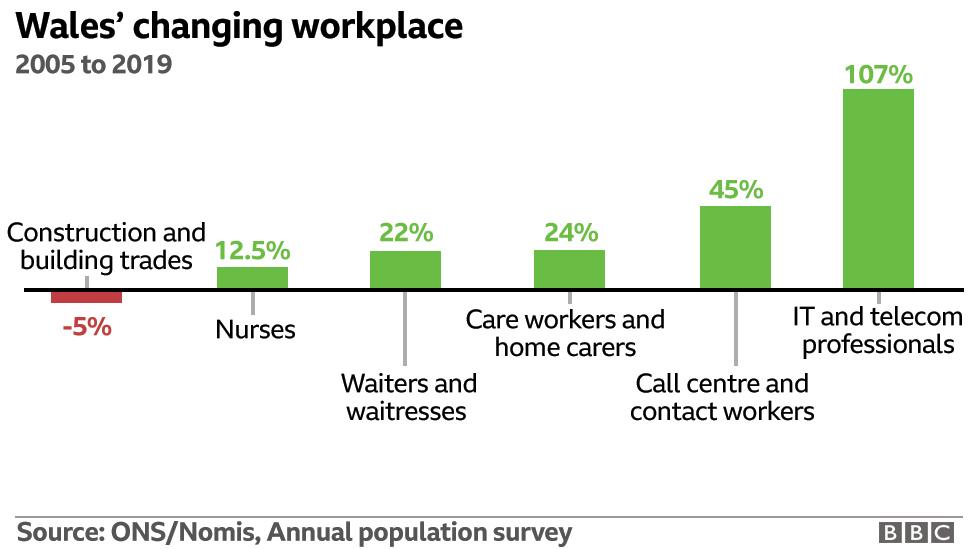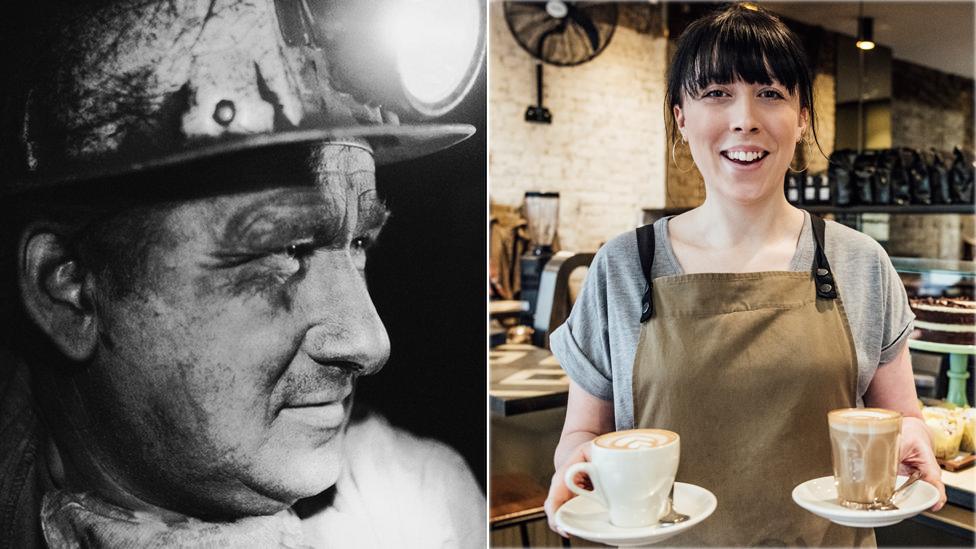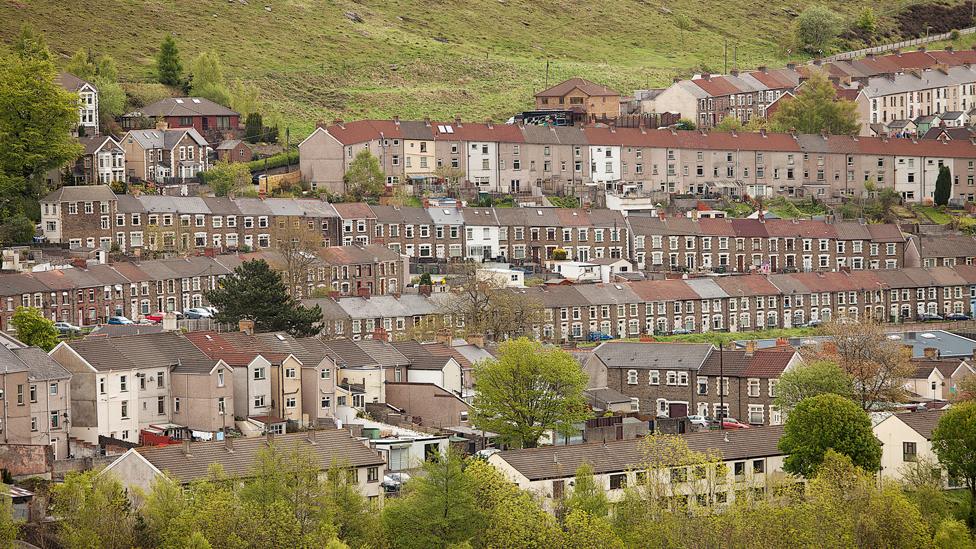Jobs in Wales: how has work changed over two decades?
- Published
Work in Wales - what do we really do now?
The image of Wales as a hotbed of heavy industry has long faded but how much has the workplace really changed?
Official figures, analysed by BBC Wales, suggest the biggest increases have been in hotels, restaurants, and health and social care.
In terms of actual jobs, the biggest fall in private sector work has actually been in administrative and secretarial jobs.
The biggest increase has been in managers and directors - we have more of them in Wales than care workers.

What are the headlines?
A big increase (+50%) in those of us working in health and social care - 200,000 of us work in that sector. Almost half are part-time, in what we know tends to be a low-paid industry
A similar rise (+43%) in hotel and restaurant workers - and again half are part-timers in an industry linked to insecure contracts and low pay
When you look at manufacturing, there are 33% fewer workers than 20 years ago. However, what is also interesting is the value of what they make is much higher (50% more). In other words, the products we make in Wales tend now be more sophisticated or more expensive
Interestingly, agriculture has a similar number of people working in it as in 1998 but whereas then a small proportion (21%) were part time, now nearly three quarters ( 71%) are part time - and doing several jobs at a time

What about the types of jobs we do less?
The number of administrative and secretarial workers has fallen steeply (-15%) thanks to changes in technology.
There has been a similar drop in machine operators.
Are there jobs we do more?
There has been a big increase in professional workers. There are now 272,700 of them in Wales, an increase of 33% compared with 2004.
And there are more managers, directors and senior officials - they have increased by 25% to 141,600.

So what does it mean?
You could say it is good news, as it means there are many more knowledge workers. But on the other hand, the industries that have grown most in the last 20 years are ones which are dominated by low pay, zero-hours contracts and little job security.
Perhaps it is not surprising then that research by Cardiff University has come to the conclusion that Welsh workers are under the most stress in the UK - and fearful that they will be dismissed for not being good enough.

From digging coal to serving food - how else has the Welsh economy changed?
- Published22 January 2019

- Published21 July 2019

- Published3 August 2019
